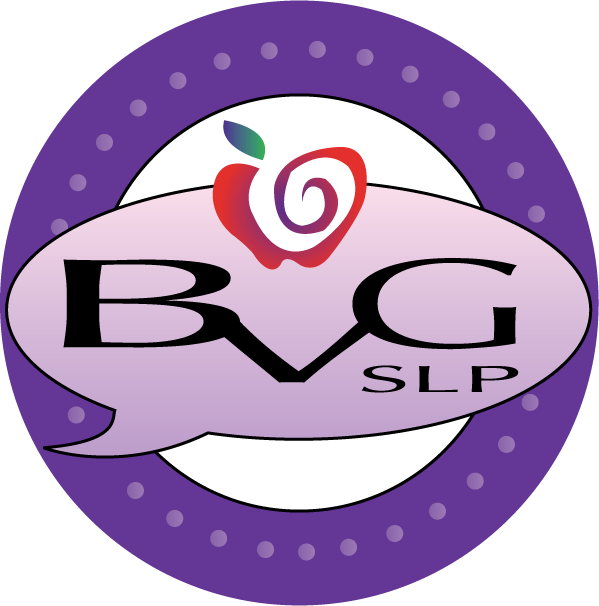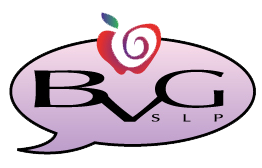National Speech Language Pathologists Day
Let’s celebrate National Speech Language Pathologists Day on May 18th! It’s a perfect opportunity to delve into the remarkable work of these unsung heroes – the Speech Language Pathologists (SLPs). Often overlooked, the role they play in healthcare and education is absolutely pivotal. SLPs impact the lives of countless individuals facing communication and swallowing challenges.
SLPs, also known as speech therapists, work with a diverse range of patients, from infants to the elderly. As one of my most influential former professors used to say, SLPs serve clients “from the womb to the tomb.” So what is the primary mission of SLPs? To help individuals overcome a variety of challenges including articulation, fluency, voice, language problems, literacy challenges, swallowing difficulties, and cognitive-communication disorders. Let’s take a closer look at each one.

Articulation
Articulation disorders, such as difficulty pronouncing certain sounds or words, can limit an individual’s ability to express themselves clearly. SLPs play a vital role in articulation therapy, which aims to help individuals produce clear speech by correcting sound errors. These errors can include distortions, substitutions, omissions, and additions in speech sounds.
In their role, SLPs first conduct an assessment to identify the specific articulation errors. They then design a personalized therapy plan that includes a series of speech exercises tailored to the individual’s needs. During therapy sessions, SLPs model correct pronunciation and provide feedback, helping the individual learn how to produce sounds correctly. They guide individuals through exercises that improve the control of speech muscles, the coordination of articulatory movements, and the ability to hear and discriminate sounds.
SLPs also use a variety of techniques such as phonetic placement (teaching how to position articulators), auditory discrimination (recognizing correct and incorrect sounds), and drill practice to reinforce correct sound production.
Fluency
Fluency disorders, like stuttering, can make smooth, easy conversation a challenge. SLPs play a significant role in the diagnosis and treatment of fluency disorders, such as stuttering or cluttering, which affect the flow of speech.
SLPs start by conducting a comprehensive evaluation to identify the specific characteristics of the individual’s fluency disorder. They assess aspects such as the frequency of disfluencies, types of speech disruptions, associated physical behaviors, and the individual’s reactions to their speech difficulties.
Based on this assessment, SLPs develop a personalized treatment plan that addresses the unique needs of the individual. This may include a variety of therapeutic approaches designed to improve fluency, reduce the frequency of stuttering events, or enhance communication skills despite the presence of disfluencies.
SLPs often collaborate with the individual’s family and educators, providing them with strategies to support the person’s communication in everyday settings.
Voice
Voice disorders, which can be characterized by hoarseness, pitch, volume issues, or even voice loss, can severely impact a person’s ability to communicate. SLPs are key in diagnosing and treating voice disorders, which can be characterized by issues with pitch, volume, tone, and other qualities of voice that affect an individual’s ability to communicate effectively.
SLPs start by conducting a comprehensive evaluation of the individual’s voice, including the quality, pitch, loudness, and endurance. They may use specialized instruments to measure these features and to visualize the vocal cords. Based on the evaluation, SLPs develop a personalized treatment plan aimed at restoring optimal voice function. This can include direct voice therapy, which involves teaching techniques and exercises to modify vocal behaviors and improve vocal health. Some strategies might include breath control exercises, relaxation techniques for laryngeal muscles, or resonance voice therapy.
SLPs also educate individuals on vocal hygiene, providing strategies to prevent voice strain and maintain a healthy voice, such as adequate hydration, avoiding shouting or whispering, and proper use of the voice in different settings
Language Disorders
Language disorders can be either expressive (difficulty sharing thoughts, ideas, or feelings) or receptive (difficulty understanding others). SLPs play a critical role in assessing, diagnosing, and treating language disorders.
In cases of language disorders, SLPs first conduct comprehensive assessments to identify the nature and extent of the problem. This could involve analyzing the individual’s vocabulary, sentence structure, and pragmatic skills. They also consider the impact of these language difficulties on the person’s academic, social, and occupational functioning.
Once the assessment is complete, SLPs develop a personalized treatment plan. This may involve direct therapy sessions where they employ a range of strategies tailored to the individual’s specific needs. These strategies could include language stimulation techniques, narrative skills development, vocabulary enrichment exercises, and more.
SLPs also work closely with family members, caregivers, and teachers, providing them with strategies to support the individual’s language development in daily life. They may also advocate for the individual in educational settings, ensuring they receive the necessary accommodations.
Literacy Challenges
Children with language impairments often struggle with literacy. These challenges can manifest as difficulties in understanding and using vocabulary, difficulties in understanding and constructing sentences, or difficulties with narrative skills, all of which are critical for reading comprehension and written expression.
SLPs use their expertise in phonology, morphology, syntax, semantics, and pragmatics to assess and treat language disorders that underpin literacy challenges. They assist with phonological awareness, the ability to recognize and manipulate the sounds in words, which is a crucial precursor to reading. SLPs help children understand and use the rules of language, including word and sentence structure, which is important for both reading comprehension and writing. They also help children improve their narrative skills, supporting their ability to understand and compose stories.
Swallowing Difficulties
Swallowing difficulties, often resulting from medical conditions like stroke, brain injury, or cancer, can drastically affect a person’s health and quality of life. SLPs play a crucial role in diagnosing and managing swallowing disorders, also known as dysphagia. These disorders can occur at any stage of the swallowing process and may be due to various conditions, including neurological disorders, structural abnormalities, or certain diseases.
SLPs begin by conducting a comprehensive assessment of the individual’s swallowing abilities. This may involve clinical evaluations and instrumental assessments like videofluoroscopic swallow studies or fiberoptic endoscopic evaluation of swallowing.
Based on the findings, the SLP then devises a personalized treatment plan. This can include exercises to improve muscle movement, techniques to modify swallowing behavior, and strategies to enhance safety and efficiency during meals. SLPs may also recommend changes in diet textures and liquid consistency to make swallowing easier and safer. They collaborate with other healthcare professionals and the patient’s family to ensure a holistic approach to managing the swallowing disorder.
Cognitive-Communication Disorders
Cognitive-communication disorders, commonly seen in individuals with brain injuries, can disrupt thinking skills, attention, memory, organization, and problem-solving. SLPs play a fundamental role in diagnosing and treating cognitive-communication disorders, which affect cognitive processes including attention, memory, organization, problem solving, and executive functions that are critical for successful communication.
SLPs start by conducting a detailed evaluation of the individual’s cognitive-communication abilities, which helps to determine the nature and extent of the impairment. They assess areas such as attention span, memory, problem-solving abilities, verbal and non-verbal communication, and the ability to use these skills in social and practical contexts.
Based on the evaluation, SLPs develop a personalized treatment plan focused on enhancing the person’s cognitive-communication skills. Therapy may include direct interventions to improve specific cognitive abilities, compensatory strategies to help the person cope with their challenges, or environmental modifications to reduce cognitive demands during communication.
SLPs also work closely with family members and other healthcare professionals to support the individual’s communication needs in everyday life. They provide education and training, offer strategies for communication, and advocate for necessary accommodations in various settings.
Thank an SLP!
This National Speech Language Pathologists Day, it’s crucial to acknowledge that the work of an SLP extends beyond therapy sessions. They serve as advocates and educators, provide emotional support to families, contribute to research in their field, and constantly update their knowledge with the latest developments in speech and language pathology.
So, on May 18th and everyday, let’s raise our voices in appreciation of the SLPs. It is through their dedication and compassion, that they empower countless individuals to express themselves freely. To all the SLPs out there, your work does not go unnoticed. Thank you for your invaluable contribution to a more inclusive, understanding, and communicative world.
May is Better Hearing and Speech Month, click the link to find out how YOU can help raise awareness for this amazing profession.







Leave a Reply
Your email is safe with us.